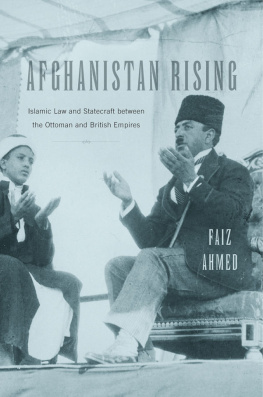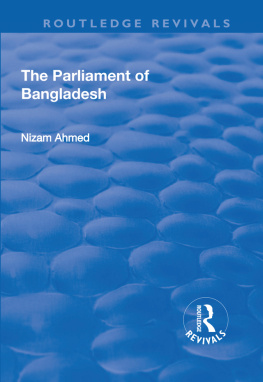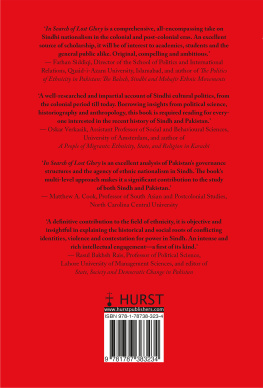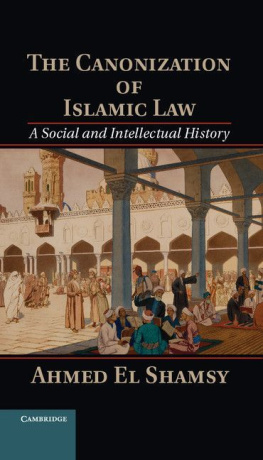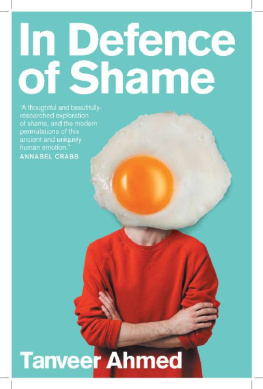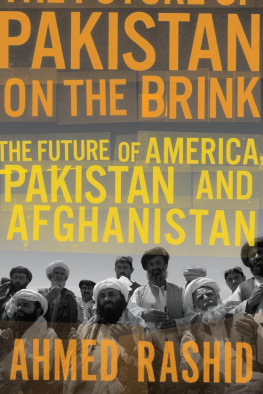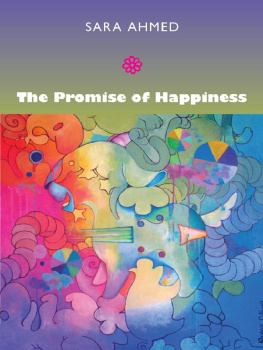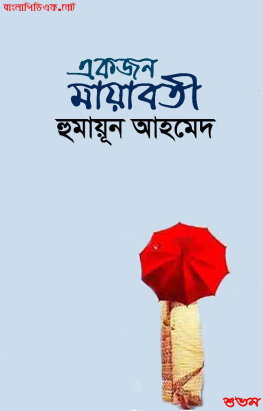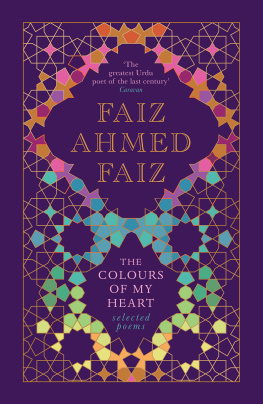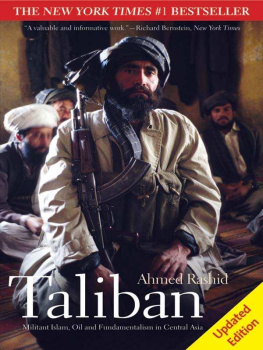Faiz Ahmed - Afghanistan Rising
Here you can read online Faiz Ahmed - Afghanistan Rising full text of the book (entire story) in english for free. Download pdf and epub, get meaning, cover and reviews about this ebook. year: 2017, publisher: Harvard University Press, genre: Politics. Description of the work, (preface) as well as reviews are available. Best literature library LitArk.com created for fans of good reading and offers a wide selection of genres:
Romance novel
Science fiction
Adventure
Detective
Science
History
Home and family
Prose
Art
Politics
Computer
Non-fiction
Religion
Business
Children
Humor
Choose a favorite category and find really read worthwhile books. Enjoy immersion in the world of imagination, feel the emotions of the characters or learn something new for yourself, make an fascinating discovery.
- Book:Afghanistan Rising
- Author:
- Publisher:Harvard University Press
- Genre:
- Year:2017
- Rating:4 / 5
- Favourites:Add to favourites
- Your mark:
- 80
- 1
- 2
- 3
- 4
- 5
Afghanistan Rising: summary, description and annotation
We offer to read an annotation, description, summary or preface (depends on what the author of the book "Afghanistan Rising" wrote himself). If you haven't found the necessary information about the book — write in the comments, we will try to find it.
Afghanistan Rising — read online for free the complete book (whole text) full work
Below is the text of the book, divided by pages. System saving the place of the last page read, allows you to conveniently read the book "Afghanistan Rising" online for free, without having to search again every time where you left off. Put a bookmark, and you can go to the page where you finished reading at any time.
Font size:
Interval:
Bookmark:
Afghanistan Rising
Islamic Law and Statecraft between the Ottoman and British Empires
FAIZ AHMED
HARVARD UNIVERSITY PRESS
Cambridge, Massachusetts
London, England
2017
Copyright 2017 by the President and Fellows of Harvard College
All rights reserved
Cover design: Graciela Galup
Cover art: ullstein bild / Getty Images
978-0-674-97194-3 (alk. paper)
978-0-674-98216-1 (EPUB)
978-0-674-98215-4 (MOBI)
978-0-674-98214-7 (PDF)
The Library of Congress has cataloged the printed edition as follows:
Names: Ahmed, Faiz, 1980 author.
Title: Afghanistan rising : Islamic law and statecraft between the Ottoman and British empires / Faiz Ahmed.
Description: Cambridge, Massachusetts : Harvard University Press, 2017. | Includes bibliographical references and index.
Identifiers: LCCN 2017014627
Subjects: LCSH: LawAfghanistanHistory. | Islamic lawAfghanistanHistory. | Constitutional historyAfghanistan. | AfghanistanPolitics and government. | AfghanistanRelationsTurkey. | TurkeyRelationsAfghanistan. | AfghanistanRelationsIndia. | IndiaRelationsAfghanistan.
Classification: LCC KNF68 .A366 2017 | DDC 349.581dc23
LC record available at https://lccn.loc.gov/2017014627
For all daughters and sons of Afghanistan.
And the world.
MAPS
FIGURES
This book draws on sources in Afghan Persian (also known as Dari or Kabuli Persian), Arabic, Ottoman Turkish, Pashto, and Urdu, and utilizes up to four calendars as methods of dating. The following standards are adopted to balance orthographic and chronological consistency with an appreciation for the pluralism at the heart of the subject matter.
Words found in the Merriam-Webster Dictionary (e.g., amir, effendi, Kandahar, pasha, ulema) are not translated or transliterated. Barring those exceptions, Ottoman Turkish words are transliterated to republican Turkish following the International Journal of Middle East Studies (IJMES) (hence Abdlmecid, not Abd al-Majid). Dari, Pashto, and Urdu words are transliterated according to Persian usage following IJMES, with two exceptions: first, preserving the common Dari pronunciation of as w, and not v (hence Wali, not Vali); second, retaining the common Anglicized spellings of Pashtun suffixes as -zai (hence Barakzai, not Barakzai or Barakzay) as well as the names of Indian authors who published in English (hence Abdul Ghani Khan, not Abd al-Ghani Khan). Southern / Kandahari dialect of Pashto has been preferred over eastern / Peshawari Pakhto. In all other cases the default transliteration system is Arabic following IJMES. The following pronunciation guide is provided for readers reference.
Long Vowels in Arabic, Dari / Persian, Pashto, and Urdu
a, as in basket |
ee, as in tree |
oo, as in zoo |
Distinctive Turkish Letters
c | j, as in jasmine |
ch, as in charity | |
unvocalized; lengthens preceding vowel | |
u, as in up (upper case: I) | |
upper case of the letter i | |
as the German , or as eu in the French word deux | |
sh, as in shine | |
as the German , or as u in the French word tu |
Calendars
Historical records and manuscripts cited in this book employ one or more of the following calendars as chronological techniques: Gregorian (CE), Hijri, Ottoman Rumi, and Persian Jalali. The Hijri calendar is the Islamic lunar calendar dating to the migration (Hijra) of the Prophet from Mecca to Medina in 622 CE. Traditionally, Hijri months begin and end based on confirmed local sightings of the new crescent moon with the naked eye, hence leaving room for minor variation between locales of great distance before the advent of modern telecommunications. The Ottoman Rumi calendar (also known as Maliye, or fiscal calendar) is solar-based and derived from the Roman Julian dating system, but with a start date from the Hijra. Persian Jalali is the official solar calendar of Afghanistan and Iran, also with a start date from the Hijra.
For precision and consistency, Gregorian dates are used by default, whereas Hijri (h), Rumi (r), and Jalali (j) dates are followed by their equivalent Gregorian date or approximate Gregorian year range, as in the following examples:
(1294h 20 / 1877 08 29)
(1330r / 19141915)
(1302j Mizan 24 / 1923 10 17)
For the Persian Jalali calendar, Afghan Dari month names have been used in place of their Iranian equivalents.
ON MAY 17, 1929, an intrepid high school student in Los Angeles, California, sat at his desk, pulled out a sheet of paper and pencil, and began his homework. A particularly daunting class project had been weighing on his shoulders, and time to procrastinate was running out. His assignment: to find primary source material on the state of law and government in Afghanistan. At a loss with where to begin, the young Edison Ostrom was aware the British Raj had a thorny relationship with the Forbidden Kingdom, as Afghanistan had been infamously known in English novels and newspapers since Victorian times. So he decided to press his case with the British Embassy in Washington, D.C. Edisons handwritten letter, still legible in faded pencil lead, was forthright in its request: Our class here in school has been studying Asia but has been unable to get any up to date material on Afghanistan, Ostrom confessed. Would you please inform me what the present form of government is. Before affixing his signature, Edison could not resist scribbling a final query at the letters close: whether London would confirm rumors that famed British superspy T. E. Lawrence was involved in covert operations against the Kabul government from the tribal zone of northwestern India, as he had been over a decade earlier against the Ottomans in Arabia.
Two months later, Edison received a response, but from a source much closer to the action than he expected: Simla, northern India, the summer capital of the British Raj. In a formal reply from the Foreign and Political Department of the government of India, veteran Raj official Sir James Glasgow Acheson first lauded the youths initiativethe enterprise displayed in which undoubtedly deserves encouragementbut regretted to inform him that there is unfortunately no generally recognized central Government in Afghanistan, which is in a state of civil war. As for the purported role of Colonel Lawrence in the Afghan tumult, Sir Acheson was resolute and dismissive: These rumours, which were partly due to anti-British propaganda and partly to sensationalism pure and simple are absolutely without any foundation of any kind.
The student from Los Angeles had received an answer, but reasonable minds could differ as to its educational value. Though not exactly inaccurate, the transoceanic letter exchange was noticeably silent on Afghanistans more positive and instructive achievements in recent years, including its independence from Britain in 1919 and the promulgation of its first constitution in 1923, among other milestones in law, governance, and diplomacy in that decade alone. Instead, one students search for reliable material on the country yielded an ahistorical portrait bereft of contextjust another day of mayhem in Afghanistan, so it would seem. In the end, perhaps a fixation on motifs of war, chaos, and regime change by the questioner and questioned here is not so remarkable. Nearly a century later, after all, when it comes to Afghanistan many a writer and reader continue to be drawn to the same themes.
Font size:
Interval:
Bookmark:
Similar books «Afghanistan Rising»
Look at similar books to Afghanistan Rising. We have selected literature similar in name and meaning in the hope of providing readers with more options to find new, interesting, not yet read works.
Discussion, reviews of the book Afghanistan Rising and just readers' own opinions. Leave your comments, write what you think about the work, its meaning or the main characters. Specify what exactly you liked and what you didn't like, and why you think so.

